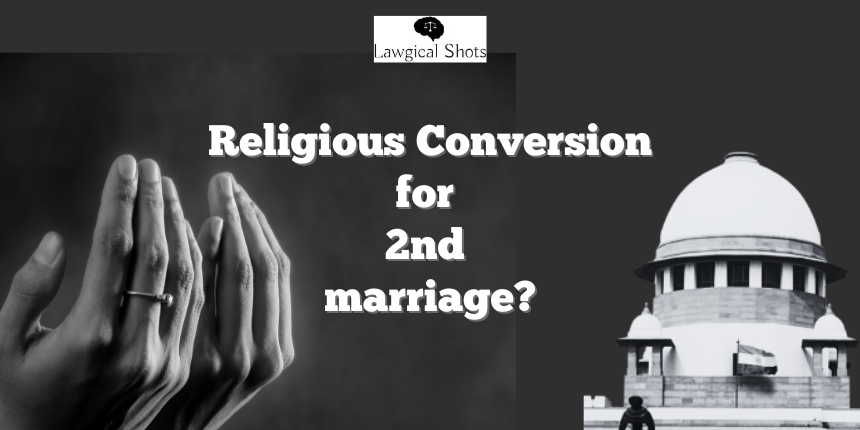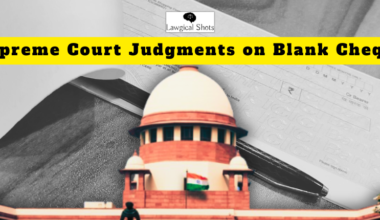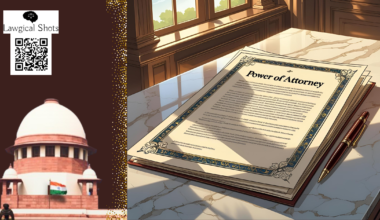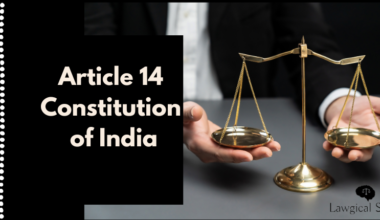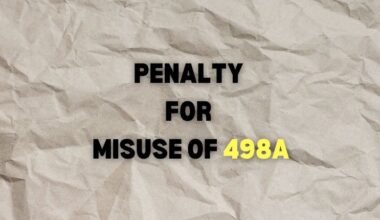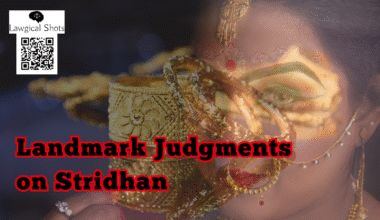The practice of multiple marriages was discarded by Hindus after the advent of Hindu Marriage Act in 1955. Since then, a Hindu man or woman could not marry again if the first spouse was alive. Since converting to another religion was an option, some people found the loopholes and converted to Islam for second marriage with other woman, without divorcing their first wife. The reason was that men can marry 4 times while all 4 spouses were alive. Polygamy is allowed in Islam. But is it not a misuse of laws? The Supreme Court explored it in Lily Thomas v. Union of India AIR 2000 SC 1650.
Background
The case of Lily Thomas vs. Union of India (2000) addresses the issue of bigamy and the practice of converting to another religion in order to legally solemnize the second marriage. This is a landmark case due to the fact that in this case the Supreme court considered second marriage without prior divorce from the first marriage to be void wherein men were converting their religion to Islam. All of this was void unless and until the first marriage was dissolved according to the Hindu Marriage Act. Otherwise, the husband would be liable for bigamy under section under Section 494 and Section 495 of Indian Penal Code. Several petitions were considered by the Supreme Court to address the issue of bigamy and the misuse of religious conversion for remarriage.
Facts in Lily Thomas Bigamy Case
- This case sprouted as a writ petition to review the Apex Court decision in Sarla Mudgal v. Union of India. It was based on various articles of the Indian Constitution of 1950, specifically Article 20, Article 21, Article 25 and Article 26.
- The general understanding on bigamy among Hindus is that it is illegal. Bigamy is the offence of marrying another while first marriage still persists and such bigamous relations are illegal and second marriage is void ab initio.
- Mrs. Sushmita Ghosh was married to Mr. Gyan Chand Ghosh according to Hindu Marriage Act on 10th May 1984.
- Later, her husband told her to agree for a mutual divorce as he no longer wished to live with her any further.
- All of this was unacceptable to Mrs. Ghosh and she prayed that she was legally wedded. Since she wanted to live with her husband and continue her marriage, divorce was out of question.
- The husband further told her that he has converted to Islam and would marry Vinita Gupta now as he procured a certificate dated 17th June 1992 from Qazi.
- Mrs. Ghosh pleaded that her husband should be restricted from marrying Vinita Gupta as his second wife.
- Also the main issue at hand was the implementation of a uniform civil code, as outlined in Article 44 of the Constitution.
- However, the challenge was that if such uniformity were enforced, it might directly infringe upon the rights of citizens to practice and spread their religion, as protected by Article 25.
Issues in Lily Thomas Case
- Whether a religious conversion solely for the purpose of contracting a second marriage is valid?
- Whether a Hindu husband can solemnize a second marriage by converting to Islam?
- Whether the husband would be liable for bigamy under Section 494 of the IPC for marrying again without dissolving the first marriage.
- Whether there be a Uniform Civil Code for all citizens?
Lily Thomas Bigamy Judgment Summary
Contentions by Parties on Religious Conversion Bigamy
Petitioner
- The petitioner questioned in Lily Thomas bigamy case that since marriage is a sacred institution, then how resorting to the act of religious conversion to Islamto commit the act of bigamy was valid? If Muslim personal law allows, it is an attempt to infringe the rights of woman facing such bigamous marriage and such betrayal is violative of Article 21 (Right to life and liberty).
- The Petitioner cited the principle of natural justice from Maneka Gandhi v. Union of India. It was contended that the second marriage of the Respondent violated the principle of natural justice. It also infringed Article 21. They argued that the conversion of the Respondent was not genuine as he continued to practise Hinduism and was identified as a Hindu in several official documents. He did not even change his name as required for converting to Islam.
- Lily Thomas pleaded before the court to declare male polygamy in Muslim Law to be unconstitutional.
- In Lily Thomas v. Union of India Bigamy Case, the petitioner contended that the respondent’s conversion to Islam violated Islamic law. One must give up their prior religion in order to be regarded as a Muslim. Nonetheless, in a number of official documents, including his child’s birth certificate, application for a Bangladesh visa, electoral roll, and other records, the respondent continued to follow his Hindu faith and was referred to by his Hindu name, Gyan Chand Ghosh. Despite his conversion to Islam, which was done purely for the purpose of entering into a second marriage with Miss Vanita, disobeying the theological doctrines of both religions, it was evident that he was still identified as Hindu.
- It was urged before the Court to apply the Uniform Civil Code so as to deal with vast socio-legal issues prevailing due to various religious personal laws.
- Pressing upon Section 11 of the Hindu Marriage Act, the petitioner argued that the second marriage was null and void because it did not satisfy the requirements outlined in Section 5 of the same Act. Since Mrs. Ghosh was still alive at the time of the second marriage, the first requirement in Section 5—that there be no surviving spouses—was not fulfilled. In accordance with Section 17 of the Hindu Marriage Act and Sections 494 and 495 of the Indian Penal Code, the petitioner asked that the marriage be deemed null and void and that the respondent be held accountable.
- Many Muslim women have filed petitions before the Supreme Court and High Court to declare Polygamy in Muslim Law to be unconstitutional.
Respondent
- The respondent in the Lily Thomas case argued that upon converting to Islam, they were entitled to have four wives, regardless of their first wife remaining Hindu. They maintained that there was no breach of fundamental rights because the accusations were made under the Indian Penal Code and that personal laws applied in this case.
- Invoking Article 25 of the Indian Constitution, which guarantees freedom of religion, the respondents argued that they had exercised their right to religious conversion. They asserted that Section 11 of the Hindu Marriage Act applies only to Hindus, and since the respondent had converted to Islam, Hindu laws no longer applied.
- The respondents further noted that while polygamy is prohibited under Hindu laws, Muslim laws permit a man to have up to four wives, provided they are treated equally. Therefore, they argued that under the applicable Muslim laws, the respondent’s second marriage was permissible.
Legal Provisions in Lily Thomas Bigamy Judgment
Lily Thomas case involved various legal provisions which played a significant role:
Bigamy under Section 494 (Indian Penal Code)
The provision stated that whoever, having a husband or wife living, marries in any case in which such marriage is void by reason of its taking place during the life of such husband or wife, shall be punished with imprisonment of either description for a term which may extend to seven years, and shall also be liable to fine. It’s a non-cognizable bailable offence.
Bigamy under Section 495 (Indian Penal Code)
It stated that whoever commits the offence defined in the last preceding section having concealed from the person with whom the subsequent marriage is contracted, the fact of the former marriage, shall be punished with imprisonment of either description for a term which may extend to ten years, and shall also be liable to fine.
Note – Provision for bigamy under Sections 494 and 495 have been incorporated under Section 82 of the Bharatiya Nyaya Sanhita, 2023.
UCC under Article 44 (Indian Constitution)
Article 44 of the Indian Constitution proposes Uniform civil code for the citizens. It states that The State shall endeavour to secure for the citizens a uniform civil code throughout the territory of India. This would prevent a non-Islamic husband from converting to Islam solely for the purpose of marrying a second wife, rather than out of genuine faith.
Article 21 (Indian Constitution)
Article 21 of the Indian Constitution mentions protection of life and personal liberty. It states that no person shall be deprived of his life or personal liberty except according to procedure established by law. In Lily Thomas vs Union of India, the Supreme Court interpreted Article 21 to highlight that personal liberty is not restricted to physical freedom but also includes the right to live with dignity.
Section 11 (Hindu Marriage Act)
It states that any marriage solemnised after the commencement of this Act shall be null and void and may, on a petition presented by either party thereto [against the other party], be so declared by a decree of nullity if it contravenes any one of the conditions specified in Clauses- (i), (iv) and (v) of Section 5.
Section 17 (Hindu Marriage Act)
It states that any marriage between two Hindus solemnized after the commencement of this Act is void if at the date of such marriage either party had a husband or wife living and the provisions of sections 494 and 495 of the IPC, shall apply accordingly.
Lily Thomas v. Union of India Bigamy Judgment
The Supreme Court in Lily Thomas vs. Union of India Bigamy judgment ruled that if a party has a living life partner and he contracted or endeavours to contract a second marriage, then such marriage would be invalid and void under Section 11 of Hindu Marriage Act, 1955. The Court emphasized that religious conversions must be motivated by faith and not by personal and legal convenience. The court declared that whilst the freedom to practice one’s religion is guaranteed by Article 25 of the Indian Constitution, this freedom is forbidden to infringe upon the rights of others.
Further, the Apex Court declared that such conversions to Islam, carried out solely for the purpose of marrying a second wife while still married under the Hindu Marriage Act, would amount to bigamy under Section 494 and 495 of the Indian Penal Code, as they involve the dissolution of the first marriage without legal grounds. The Court sought to protect the rights of women and prevent the exploitation of the legal system for marriage purposes.
The Apex Court concluded that Mr. Ghosh’s conversion to Islam and subsequent second marriage was invalid. It ruled that Sections 494 and 495 of the Indian Penal Code, as referenced in Section 17 of the Hindu Marriage Act, 1955, were applicable.
Conclusion
In Lily Thomas vs. Union of India, the court ruled in the favour of the wife stating that it is illegal converting to Islam just to marry someone else while still being married to the first wife. Marriage would not be dissolved only by the pretext of one converting to another religion. The reason derived from the facts that lead to this judgement was due to the practice of the husband who had converted to Islam not out of faith but for the sole purpose of remarriage without divorce. This landmark judgment underlined the need for compliance with personal laws and highlighted the ongoing discourse around the implementation of a Uniform Civil Code in India.
The case summary in Lily Thomas v. Union of India has been simplified by our intern, Ms. Sanya Wadhwa. She joined the team to assist and bring informational legal blogs.
